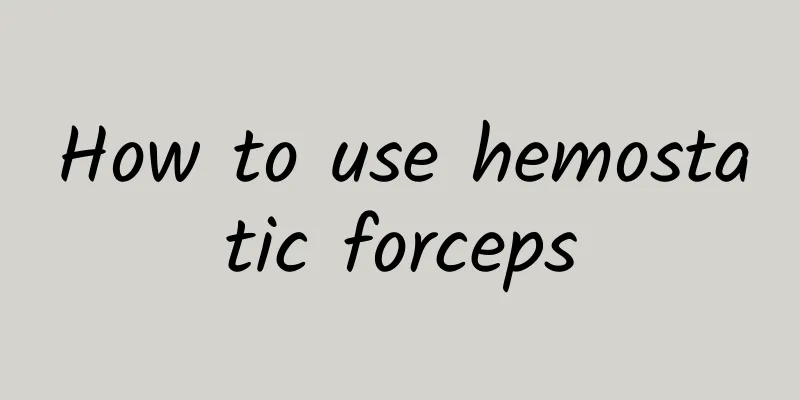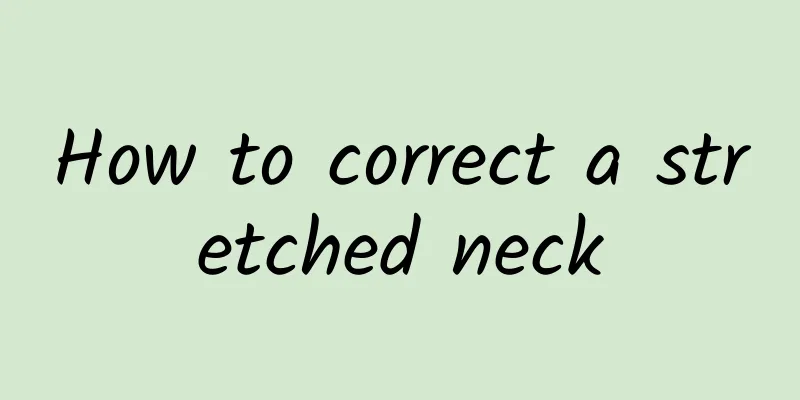How to use hemostatic forceps

|
Hemostatic forceps are a relatively common medical device. They are generally the most commonly used in surgical treatments. They can clamp some internal blood vessels of the human body to achieve the effect of hemostasis. They are a very common medical device when rescuing patients with bleeding diseases. Of course, as ordinary people, we rarely use this kind of medical device. Let us understand how to use hemostatic forceps. How to use hemostatic forceps Introduction to the use of hemostatic forceps. Hemostatic forceps are used to clamp blood vessels and tissues in the human body to stop bleeding. When rescuing a patient who is bleeding, after giving him hemostatic drugs, use hemostatic forceps to clamp the blood vessels and arteries to prevent the blood from flowing out. The principle is the same as the clamp, but it is sterilized. Hemostatic forceps: There are large and small types, with teeth and without teeth, straight and curved types. Different types of hemostatic forceps are used according to different operation sites. The method of holding the hemostat is the same as that of surgical scissors. Includes usage position and carrying position. During the surgical operation, the possible bleeding sites or the bleeding points that have been seen should be clamped first. The clamping of the bleeding points requires accuracy and it is best to succeed in one go. Do not bring too much healthy tissue into the blood. The thickness of the ligature should be selected according to the amount of tissue clamped and the thickness of the blood vessels. If the blood vessels are thick, they should be ligated freely separately. When ligating, the tip of the upper vascular clamp must be rotated and raised, and the wire must completely cover the required ligature tissue. When tightening the first knot, lower the raised vascular clamp and gradually loosen it. When the first knot is completely tightened, release the clamp and remove it. Types of hemostatic forceps Hemostatic forceps, also known as vascular forceps, are mainly used to clamp blood vessels or bleeding points at the bleeding site to achieve direct clamping hemostasis. They are sometimes also used to separate tissues and pull sutures. Hemostatic forceps generally come in two types: curved or straight, and in large, medium, and small sizes. A. Curved vascular forceps: used to clamp bleeding from deep tissue or visceral blood vessels, available in two types: long and short. B. Straight vascular clamp: used to clamp bleeding superficial tissue, assist in needle removal, etc. C. Toothed vascular forceps (toothed straight forceps): used to clamp bleeding blood vessels in thicker tissues and tissues that are prone to slippage, such as the mesentery and greater omentum. The front teeth can prevent slippage, but it cannot be used for subcutaneous hemostasis. D. Mosquito-type vascular forceps: A small and delicate vascular forceps, available in straight and curved types. It is used to stop bleeding in surgeries on organs, face, and plastic surgery, and is not suitable for clamping large pieces of tissue. |
<<: What to eat to stop bleeding when menstruation is too heavy
>>: What are the methods of stopping bleeding?
Recommend
How to relieve tooth pain immediately
It should be said that unlike common colds and fe...
Traditional Chinese medicine formula for clearing lungs and reducing phlegm
Clearing the lungs, relieving cough and resolving...
Symptoms of myocardial damage in newborns
We all know that babies are the cutest but also t...
Why does my buttocks hurt?
If there is a problem with the bones, it will hav...
Can patients with gastric ulcer eat Panax notoginseng powder? Dietary taboos need to be understood
Panax notoginseng powder can promote blood circul...
How to improve kidney function
How to improve kidney function? This is a questio...
What causes anal fissure?
Anal fissure is a relatively serious anorectal di...
Can strawberries and mulberries be eaten together?
Can strawberries and mulberries be eaten together...
Age of onset of body odor
Some of our friends don’t know that body odor is ...
Is thalassemia minor serious?
Thalassemia is a disease caused by an autosomal r...
How to treat papular urticaria
Papular urticaria is a type of allergic skin dise...
Huoxiang Zhengqi Oral Liquid
Huoxiang Zhengqi oral liquid is a common medicine...
What are the Chinese medicines for hypoglycemia?
High blood sugar has also become a more serious b...
Eight common diseases can be cured by pressing these spots!
Traditional Chinese medicine acupoint treatment h...
What are the causes of heartburn?
Nowadays, with the increasing pressure of life, t...









